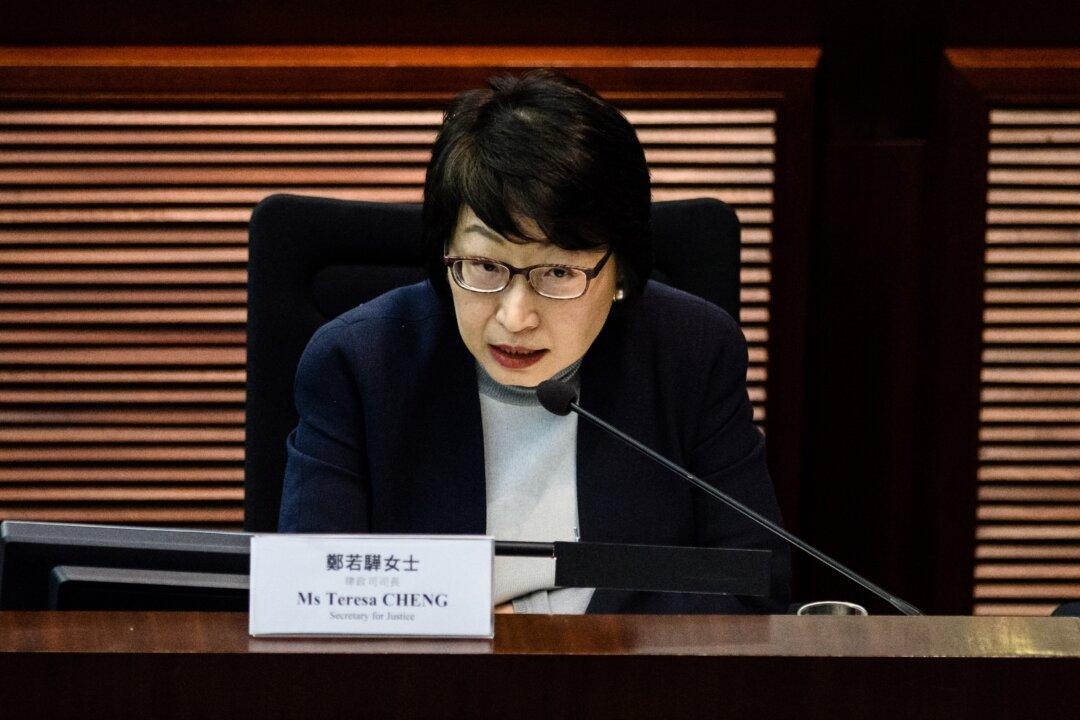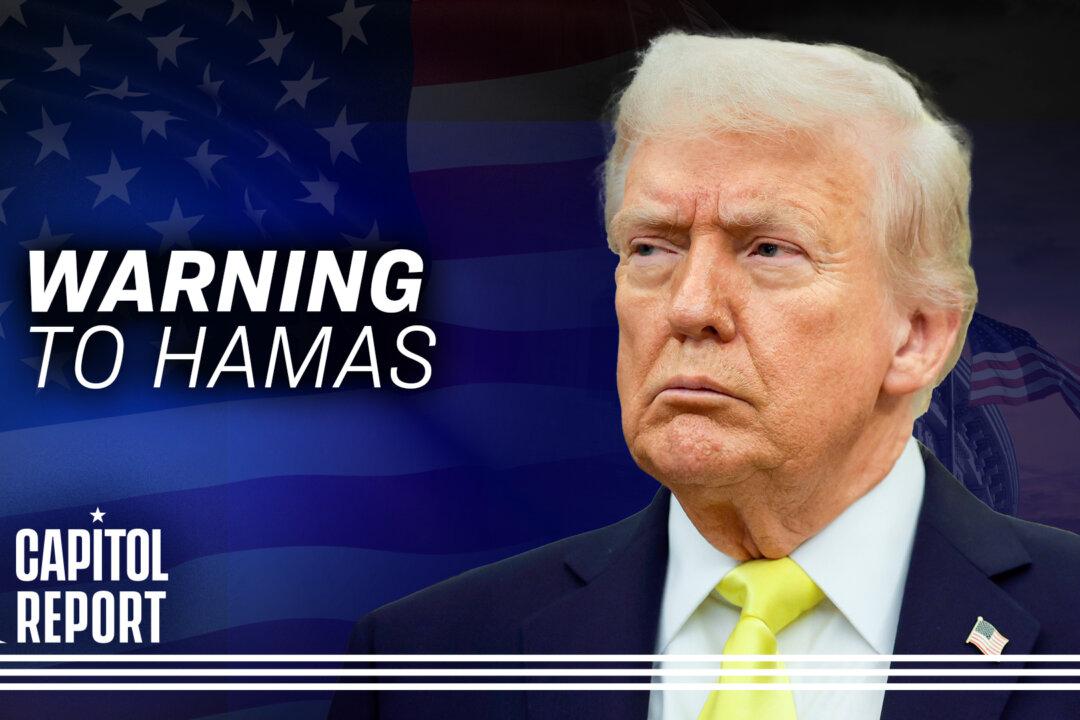Hong Kong’s justice secretary Teresa Cheng, a chief backer of the controversial extradition bill before it was suspended, is traveling to Beijing on a four-day visit, amid simmering tensions between protesters and police in the Asian financial hub.
Cheng will meet with representatives from China’s Ministry of Justice, Ministry of Foreign Affairs, and the Supreme People’s Court, the country’s highest court, on July 18, to discuss “affairs regarding the collaboration between Hong Kong and mainland China in laws and conflict-solving,” Cheng told reporters before departing on Wednesday.





